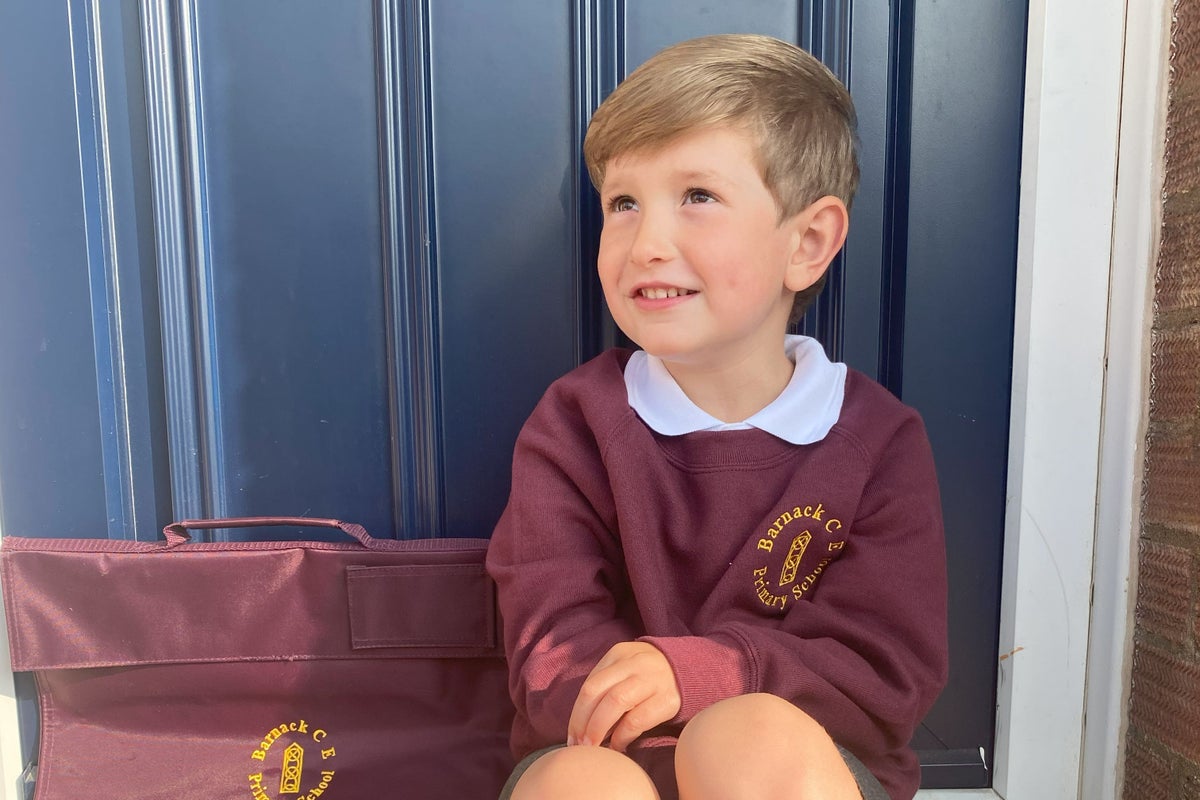A Parent’s Anxiety Over Allergies in School
In just eight weeks, my youngest child will be starting reception at primary school. But what should be a landmark moment for our family – two children in school, what a relief! – is actually a threshold marked by deep anxiety. Because although she is raring to run into her new classroom, my four-year-old has severe food allergies. She carries EpiPens for both egg and peanut – and making sure she is safe while not in my care is a huge practical and emotional undertaking.
In theory, it should be easier this time. Her older sister, about to enter Year 4, also carries EpiPens for egg and cow’s milk allergies. The school has been incredible in supporting her to start to live independently of her parents, to manage her condition safely and with confidence. She’s had school dinners every day for the last four years and there’s never been a slip-up. So why all the worry about her little sister following her lead?
In the years since she’s been at school, two things have happened. First, I have realised just how easy it is for a mistake to happen. One day, a couple of years ago, my eldest girl returned with a blotchy face and neck and itching from head to toe. I asked her if she’d eaten anything she shouldn’t and she admitted a friend had brought a chocolate donut in her bag and shared it with her. She knows the rules about food sharing, but at six years old and left unsupervised temptation won out. Worse, when she realised she’d made a mistake she didn’t tell anyone.
It was luck alone that stood in the way of tragedy that day. In the years since, her milk allergy has worsened. She’s matured enough to set her own boundaries and understand the risks – but if a slip-up happened now, the results could be devastating.
The second thing that happened was the needless death of five-year-old boy Benedict Blythe, from anaphylaxis, while at school. The inquest into his death this week exposed a catalogue of failings from the school in which his parents had placed their complete trust. After all, what choice did they have? And his school failed him.
The jury at the inquest found that protocols to keep Benedict safe had not been followed, including making sure his cup and his special milk (oat milk) were kept separate from the cow’s milk his classmates drank. Some teachers at his school were not even aware of the medical plan in place to support his allergies. When Benedict suffered an accidental reaction the previous year after eating pizza, causing him to be sick, no lessons had been learned. And on that fateful day, when a severe reaction happened, there were delays before his adrenaline pen was administered – medication that, if delivered quickly, could have saved his life.
Even when they are properly followed, the rules around allergies in school are often nonsensical. Around 8 per cent of children now have a diagnosed food allergy, so this isn’t a rare issue for teachers and school leaders to face, yet the approach most choose is outdated. Almost all educational establishments, including nurseries and some childminders, have an outright ban on nuts. Of course, that helps me feel reassured over my youngest’s risk of encountering peanuts in the classroom, but it’s not a rule that’s based in fact: more children are allergic to milk (around 5 per cent under the age of six, up to 3 per cent into the teens) than nuts and peanuts (around 2 per cent) and more children under the age of 10 die as a result of exposure to cow’s milk than nuts.
Banning allergens from school actually leads to a false sense of security. Just because there aren’t any nuts on site, doesn’t mean it’s less likely a fatal anaphylactic reaction will happen in the classroom or playground. It would be better if all schools were fully trained to understand allergy and to support children to learn independence and careful management of their medical needs.
Like every school, Benedict’s did not have a back-up EpiPen in case of an unexpected reaction from any child. There’s a campaign in place among parents and clinicians to make sure every school has EpiPens available in the medical room, just in case, but it’s not standard practice yet. A new nasal spray is now being rolled out in the US to replace EpiPens because the fear of using a needle is a major reason for a delay in administering the drug. I hope the NHS follows suit soon.
I’ve been following Benedict’s case closely. As a parent of children at such constant risk, you have to try to let the anxiety go in order for them to live a normal life, but it’s very hard. A case like this – every allergy parent’s absolute worst nightmare – feels like a reminder that I can never do enough to keep them safe and nobody else (not even a school that is legally responsible for their safety) will ever protect them the way I can.
Despite my best efforts, our family life is still limited by our children’s allergies. I haven’t yet mustered the confidence to travel with them abroad. Children’s parties are riven with anxiety; I can’t just sit back and let them enjoy the fun. I’ve given up caring what other parents think of me for double checking everything they pick up, but I feel desperately sad when they get annoyed with me for fussing. Striking the right balance is an impossible task.
As my youngest launches into the world, I’m preparing myself to educate her teachers about the risks of her allergies and how best to mitigate them yet again. Parenting is a heavy load, but meeting basic medical needs shouldn’t feel this difficult.
Benedict Blythe’s tragic and untimely death cannot be undone, but it could mark a turning point for the allergic children who follow him.







